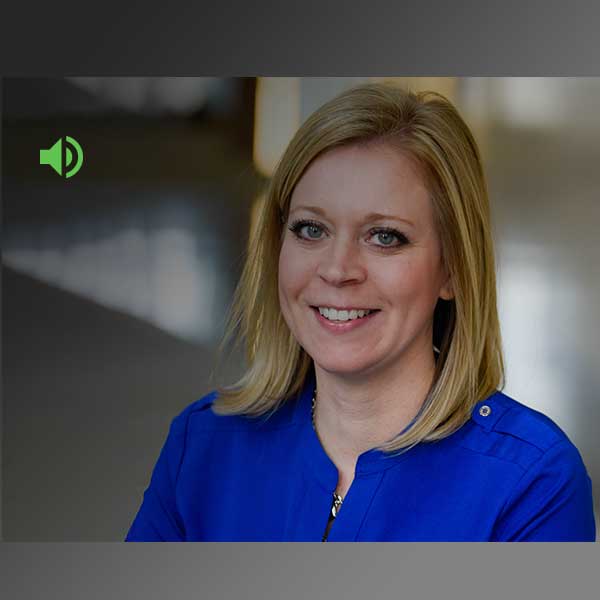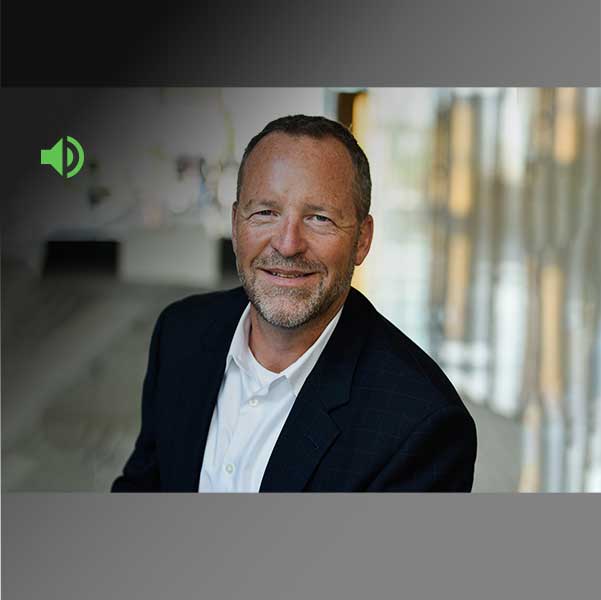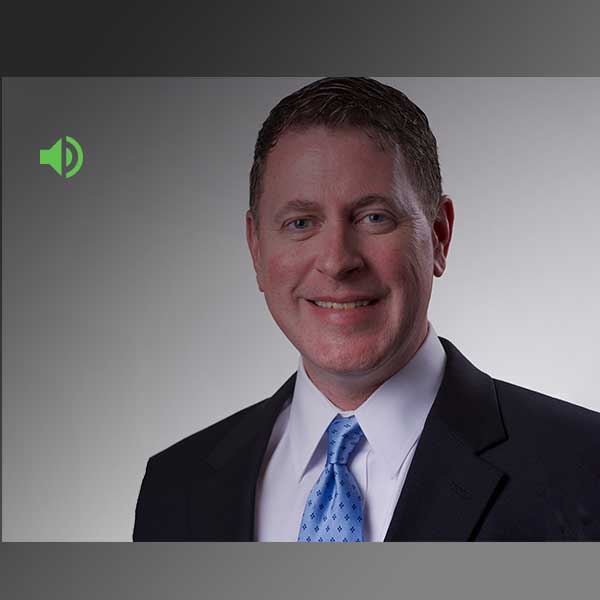What are the challenges facing the citizens of Detroit? Camille Lloyd, director of the Gallup Center on Black Voices, joins the podcast to discuss the findings of the Detroit Resident Voices Survey Report, a study of more than 11,000 Detroiters that highlights the daily experiences of Detroit residents.
To stay up to date with the latest Gallup News insights and updates, follow us on Twitter.
Below is a full transcript of the conversation, including time stamps. Full audio is posted above.
Mohamed Younis 00:12
For Gallup, I’m Mohamed Younis, and this is The Gallup Podcast. This week, we take a closer look at Motown -- no, not the record-label-turned-genre but the Motor City itself. What are the challenges facing citizens in Detroit, and how do their life outcomes compare to others across the country? Camille Lloyd is the executive director of the Gallup Center on Black Voices. Camille, welcome to the podcast, ma’am.
Camille Lloyd 00:35
It’s good to be back, Mo.
Mohamed Younis 00:37
You recently released a report on how life is going for citizens of the city of Detroit. Tell us about why you guys wanted to do this at the Gallup Center for Black Voices. Why begin with Detroit?
Camille Lloyd 00:49
Detroit has such a rich history. When you think about the history of Detroit and what the city has contributed to, I don't even want to say just Black culture, but just culture and arts and industry in this country, I feel like the question is, why not? It's a city that has been known for its resilience, right? So being the busiest hub with the industrialization of the auto industry in the early ‘20s to, you know, being, you know, I would say rich but also maybe challenging. Right? So also weathering urban decay and a city that has kind of bounced back, come back and fought, you know, numerous different challenges that could, you know, ruin any city. But I think that Detroit is a city that has a lot of resilience. And when they put their mind to working on something, like an issue around advancing equity and racial equity, when we got there and we were looking at pilot cities, it was one of those places that, you know, acknowledged that it was gonna be a challenge but was committed from the beginning to say, we want to be the first. We know it's gonna be a lot of hard work. Where do we begin? Because this is important to us in our city.
Mohamed Younis 02:03
That’s maybe a great segue for me to ask about the leaders of Detroit. Why did they want this kind of work to be done? Tell us more about the work and why didn't they just want to ask, like, who people are voting for in the next election?
Camille Lloyd 02:18
For those who probably are listening in from other places, I, I do, do know that Detroiters take this pride in being known as the Blackest city. But I think when it comes to the leaders, they knew that in order for Detroit to be the city that it's known for in all its glory, that this aspect of equity had to be a part of its resurgence, had to be a part of its development and its growth. And they, the leaders within the city were intentional in bringing the city back, and they were doing work to bring the city back. And they knew that, that they wouldn't be successful without about addressing this aspect of equity. And so when we started a conversation with the chamber, they'd already started their, the Detroit Racial Equity Blueprint group, which is saying how, bringing people together to say we have a history of doing this work. We have different organizations, both nonprofit, private sector, government and philanthropy, that were doing this work to try to address those issues. And so they had already created their Racial Equity Blueprint group to say, we know we need to do something. We can only do it as a collective if we're gonna be -- we're only gonna be as successful as we can do this together. And so they'd already recognized that doing this work, collective action is what it's gonna take to be successful in this, in this work.
Mohamed Younis 03:41
I don't want to ask you the eternally annoying question, “What does equity mean to you?” or, like, what is it? But I will ask you, what did we ask Detroiters? Like, what, what, what did the study focus on? And what did we learn?
Camille Lloyd 03:55
I think when we, this idea of how are Detroiters doing? And how are all Detroiters doing, in terms of their ability to live their best life possible, right? So I feel like it’s like a, a lofty way of describing what it means, what equity means. But there was this element of Detroiters’ -- all Detroiters’ -- ability to live their best life possible in the definition of equity. And so once we started to have conversation about, well, how do we operationalize this? What does this mean? What does it look like? It means access to opportunity to feel like, I have the ability to achieve my career and my financial goals, right? What does that look like for all Detroiters? What does it look like to live in a community where I feel like people care about each other? Or what does it mean to, again, the ability to take care of my everyday needs through accessing job opportunities, to accessing education opportunities or living in an environment that is safe, free of pollutants, but where I also have access to social events, right? We talk about the rich culture of Detroit and how Detroit has contributed so much to American culture, whether it’s music, architecture or the arts, but also knowing that there was this element of their environment and aspects of their neighborhoods that was also important, in terms of how they were operationalizing and defining what equity meant for Detroiters.
Mohamed Younis 05:18
I know you also released these data in the context of a pretty serious summit for leaders of Detroit and really the larger Detroit area across Michigan. What were some of the reactions to the data? What kind of stood out for people as, you know, things that rang true to them or things that surprised them? And how did Detroiters compare to people in other cities?
Camille Lloyd 05:41
I think for Detroiters, it was the ability to see some of these experiences quantified. I can't tell you how many people came up and say, As a native Detroiter, it was good to kind of just put a number. Like, we knew that these were some of the experiences. We knew these challenges exist within our city. But it was just being able to say, It's 51%. When we think about, we asked a question among Detroiters who were unemployed and looking for work, you know, what was the biggest barrier to them getting or keeping a job? And this ability to access transportation came out. And so everybody says, We knew, you know, we're not the most accessible; we knew we, we have some transportation challenges, but seeing it, that it was affecting 51% of us that were looking for a job, I think was what was crystallizing for the leaders but also for individual Detroiters who came up and say, It was this, it is so good to see this data and to get a hard number to understand the magnitude of the problem, again, because there's this sense of, we know we, we can fix this; we know if we're intentional, we can get this done. And so I think that there's an appreciation for this objectivity that the numbers in the study provide.
Camille Lloyd 06:52
And I think the second thing that I would say is, people were pleasantly pleased with the ability to say, amplify resident voices, right? So you think about Mackinac, the policy conference, as a stage where all the leaders -- it's not even just Michigan leaders, but also leaders across the country come and look to, right? This, this is such an example of what partnership looks like between government, philanthropy and business, and coming together to solve a a city and a region's issues and challenges. So that example of saying, we've kind of democratized the subject-matter expertise or expertise by putting into that equation resident voices through the results of this study. So I think that the ability to do that and to introduce that into a conversation that was happening in an important place like that was particularly also very encouraging and pleasing to those that came up and asked about, So what's next? Right? So now that we have this here, what do we do with this?
Mohamed Younis 07:51
Yeah, that was actually my next question. So now that we have done this work, what's next for the research? But also how do we instill the learnings of the work, what the data are teaching us, into decision-making? Because I think that's a big part of why you all wanted to get involved with this as the Gallup Center on Black Voices. And I'm sure a lot of those leaders also are really looking for a kind of a solutions-based, empirical approach to understanding these challenges. So what are the next steps?
Camille Lloyd 08:18
So I think the next step is OK, yes, if it is done, there's value to creating collective action around resident voices, right? And I think the idea is, let's, it's taken the guesswork out of it. Where do we look, in terms of giving Detroiters the ability to live their best life possible, how they define that? Well, we have the answer, based on we found from almost 12,000 Detroiters, right? So this idea of, we're all pontificating or guessing on where those solutions are, I think the data being this common premise that decision can be made from, and also it’s direct resident experience, gives it a lot more credibility, where you're taking the guesswork out of it, in terms of where do we begin? And I think that that's the aspect of the way the data was collected and the intention around the questions and the design now allows for the breaking out of these data at neighborhood level. And, and I think that's the next step is there are pockets of excellence across all neighborhoods within Detroit. So how do we know about why these individuals’ experiences in this particular neighborhood is different from a neighboring community that's right next door, and the challenges that those community members are saying they’re experiences as part, experiencing as part of their daily lives? So I think that's the next step. The next step is breaking down the data, data to those levels of action on where those partners that are sitting at the table are operating from, right? So it's that neighborhood level, it's district level, you know, it's community, it's regional level, right? Because that's where some of the action will need to happen, depending on what the issue is that those organizations are working on.
Mohamed Younis 09:59
I know your work focused on a lot of important life outcomes and opportunity gateways like education, access to good healthcare, perceptions around all those things. Did you ask anything about policing or local safety in Detroit?
Camille Lloyd 10:16
We did. We did. And it’s interesting, because I like to preface this one because it’s one of those that I think is a little bit counterintuitive. When we looked at the top things that were driving how Detroiters were rating their lives, if you live in the city versus if you live in the suburbs, this aspect of your satisfaction with law enforcement or your confidence that you’re going to be treated with respect -- it’s not that it’s not important for folks that are living in the city, but it came out as a meaningful determinant for those who were living in the suburbs. But what was interesting about the city data is that we saw that 59% of city residents said that they wanted the police to spend more time in their area. And this is something that we see in particular, because Black men and women in the city were also equally likely to say that the police would treat them fairly, but we did see some differences among younger Black residents that were living in the city.
Camille Lloyd 11:12
So this idea, I think, that Detroiters, I would say, have an expectation that their police would treat them fairly and with respect, and we see that over half want more police in their community. And I think that it’s the context around the increase in crime, right? So Detroiters want to be safe. And that’s what we saw resoundingly, in terms of this idea of improving their physical safety was important -- and that they had, they have confidence that they’ll be treated fairly and with respect, in terms of when we look at Black residents in the city overall, but do know that those that are age 30 -- or younger than age 30 -- are more likely to say that they are not expecting to be treated fairly or with respect. So some issues there, but I think that there’s some encouragement, in terms of overall, what Detroiters say they want in order to be safe and then their expectation, right? So they’re not expecting to be treated unfairly or with disrespect, for the most part.
Mohamed Younis 12:08
If I’m listening, and I am from another city -- maybe not even a major metropolitan area -- how can I collaborate with the Gallup Center on Black Voices? Where do I go?
Camille Lloyd 12:17
You could go to www.gallup.com/blackvoices. We have a contact, and it might just be, well, starting a conversation with the center to say, well, what research do you currently have on my city, on my area? Because we do, Mohamed, like you know, and we've shared, we do national studies every quarter, where we're asking some of these questions and tracking some of these questions among Black Americans across the country. So you might say, you know, what do we know about where I live? Do you have any data? And I think that's an interesting and unique way to, to kind of approach it. But I think it's also people start with what's important to them, and they want to know where, how where they live is doing across the measures that we collect at the center. So that's one way to reach out.
Camille Lloyd 12:57
Our partners in Detroit at the Detroit Regional Chamber are also open to talking to folks from other cities. And so if you're saying, don't want to go to Gallup and I want to also reach out to the chamber to see, well, what did you all do? How did you all make that decision before Gallup even got there? Right. Because that's sometimes a question that city leaders have. Right. And those that are operating within this space and trying to solve this issue and their geography is, I don't even know where to start. How do I start? Right. So reaching out also to talk to, you know, how did you all, you know, get the Racial Equity Blueprint group off the ground? How did you get all the partners to come to the meeting or at the table, right, so to speak? So, definitely reaching out to the center through www.gallup.com/blackvoices. But also reaching out to our partners at the Detroit Regional Chamber because they've, they're also very willing in saying, we know we we’re the first to take this step, but we know that what we are building is this mechanism for democratizing expertise and including resident voices in this decision-making process.
Mohamed Younis 13:59
So download the report; read more about what we learned studying residents of Detroit's opinions, experiences and attitudes, their perceptions on solutions in their community. But I'm happy, Camille, that you mentioned that the Gallup Center on Black Voices is also continuing to track national life outcomes across six key dimensions that we have started and committed to doing for 100 years. The Gallup Center on Black Voices, its mission is so important to us at Gallup. Camille, thank you for your leadership. Camille Lloyd is executive director of the Gallup Center on Black Voices. Thanks for coming on the show, Camille.
Camille Lloyd 14:36
Thank you for having me, Mo. It's always a pleasure.
Mohamed Younis 14:42
That’s our show. Thanks for tuning in. For more from Gallup, go to news.gallup.com and sign up for our newsletter, Front Page, where we break down all that Gallup is learning across the globe in one weekly email. The Gallup Podcast is directed by Curtis Grubb and produced by Justin McCarthy. I’m Mohamed Younis, and this is Gallup: reporting on the will of the people since the 1930s.



